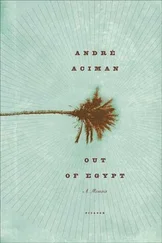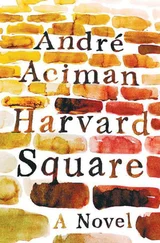André Aciman - Call Me by Your Name
Здесь есть возможность читать онлайн «André Aciman - Call Me by Your Name» весь текст электронной книги совершенно бесплатно (целиком полную версию без сокращений). В некоторых случаях можно слушать аудио, скачать через торрент в формате fb2 и присутствует краткое содержание. Год выпуска: 2007, Издательство: Farrar, Straus and Giroux, Жанр: Современная проза, на английском языке. Описание произведения, (предисловие) а так же отзывы посетителей доступны на портале библиотеки ЛибКат.
- Название:Call Me by Your Name
- Автор:
- Издательство:Farrar, Straus and Giroux
- Жанр:
- Год:2007
- ISBN:нет данных
- Рейтинг книги:5 / 5. Голосов: 6
-
Избранное:Добавить в избранное
- Отзывы:
-
Ваша оценка:
- 100
- 1
- 2
- 3
- 4
- 5
Call Me by Your Name: краткое содержание, описание и аннотация
Предлагаем к чтению аннотацию, описание, краткое содержание или предисловие (зависит от того, что написал сам автор книги «Call Me by Your Name»). Если вы не нашли необходимую информацию о книге — напишите в комментариях, мы постараемся отыскать её.
is clear-eyed, bare-knuckled, and ultimately unforgettable.
Call Me by Your Name — читать онлайн бесплатно полную книгу (весь текст) целиком
Ниже представлен текст книги, разбитый по страницам. Система сохранения места последней прочитанной страницы, позволяет с удобством читать онлайн бесплатно книгу «Call Me by Your Name», без необходимости каждый раз заново искать на чём Вы остановились. Поставьте закладку, и сможете в любой момент перейти на страницу, на которой закончили чтение.
Интервал:
Закладка:
We returned to the bar to find everyone had already left. By then it must have been three in the morning, or even later. Except for a few cars, the city was dead quiet. When, by mistake, we reached the normally crowded Piazza Rotonda around the Pantheon, it too was unusually empty. There were a few tourists lugging huge knapsacks, a few drunks, and the usual drug dealers. Oliver stopped a street vendor and bought me a Lemonsoda. The taste of bitter lemons was refreshing and made me feel better. Oliver bought a bitter orange drink and a slice of watermelon. He offered me a bite, but I said no. How wonderful, to walk half drunk with a Lemonsoda on a muggy night like this around the gleaming slate cobblestones of Rome with someone’s arm around me. We turned left and, heading toward Piazza Febo, suddenly, from nowhere, made out someone strumming a guitar, singing not a rock song, but as we got closer, an old, old Neapolitan tune. “Fenesta ca lucive.” It took me a moment to recognize it. Then I remembered.
Mafalda had taught me that song years ago when I was a boy. It was her lullaby. I hardly knew Naples, and, other than for her and her immediate entourage, and a few casual visits to Naples with my parents, had never had contact with Neapolitans. But the strains of the doleful song stirred such powerful nostalgia for lost loves and for things lost over the course of one’s life and for lives, like my grandfather’s, that had come long before mine that I was suddenly taken back to a poor, disconsolate universe of simple folk like Mafalda’s ancestors, fretting and scurrying in the tiny vicoli of an old Naples whose memory I wanted to share word for word with Oliver now, as if he too, like Mafalda and Manfredi and Anchise and me, were a fellow southerner whom I’d met in a foreign port city and who’d instantly understand why the sound of this old song, like an ancient prayer for the dead in the deadest of languages, could bring tears even in those who couldn’t understand a syllable.
The song reminded him of the Israeli national anthem, he said. Or was it inspired by the Moldau ? On second thought, it might have been an aria from Bellini’s Sonnambula . Warm, but still off, I said, though the song has often been attributed to Bellini. We’re clementizing , he said.
I translated the words from Neapolitan to Italian to English. It’s about a young man who passes by his beloved’s window only to be told by her sister that Nennélla has died. From the mouth where flowers once blossomed only worms emerge. Farewell, window, for my Nenna can no longer look out again.
A German tourist, who seemed all alone and quite drunk himself that night, had overheard me translating the song into English and approached us, begging in halting English to know if I could be so kind as to translate the words into German as well. Along the way to our hotel, I taught Oliver and the German how to sing the refrain, which all three of us repeated again and again, our voices reverberating in the narrow, damp alleys of Rome as each mangled his own version of Neapolitan. Finally we said goodbye to the German on Piazza Navona. On our way to our hotel, Oliver and I began to sing the refrain again, softly,
Chiagneva sempe ca durmeva sola,
mo dorme co’ li muorte accompagnata.
She always wept because she slept alone,
Now she sleeps among the dead.
I can, from the distance of years now, still think I’m hearing the voices of two young men singing these words in Neapolitan toward daybreak, neither realizing, as they held each other and kissed again and again on the dark lanes of old Rome, that this was the last night they would ever make love again.
“Tomorrow let’s go to San Clemente,” I said.
“Tomorrow is today,” he replied.
Part 4. Ghost Spots
Anchise was waiting for me at the station. I spotted him as soon as the train made its prolonged curve around the bay, slowing down and almost grazing the tall cypresses that I loved so much and through which I always caught an ever-welcoming preview of the glaring midafternoon sea. I lowered the window and let the wind fan my face, catching a glimpse of our lumbering engine car far, far ahead. Arriving in B. always made me happy. It reminded me of arrivals in early June at the end of every school year. The wind, the heat, the glinting gray platform with the ancient stationmaster’s hut permanently shuttered since the First World War, the dead silence, all spelled my favorite season at this deserted and beloved time of day. Summer was just about to start, it seemed, things hadn’t happened yet, my head was still buzzing with last-minute cramming before exams, this was the first time I was sighting the sea this year. Oliver who?
The train stopped for a few seconds, let off about five passengers. There was the usual rumble, followed by the loud hydraulic rattle of the engine. Then, as easily as they had stopped, the cars squeaked out of the station, one by one, and slithered away. Total silence.
I stood for a moment under the dried wooden cantilever. The whole place, including the boarded hut, exuded a strong odor of petrol, tar, chipped paint, and piss.
And as always: blackbirds, pine trees, cicadas.
Summer.
I had seldom thought of the approaching school year. Now I was grateful that, with so much heat and so much summer around me, it still seemed months away.
Within minutes of my arrival, the direttissimo to Rome swished in on the opposite track — always punctual, that train. Three days ago, we had taken the exact same one. I remembered now staring from its windows and thinking: In a few days, you’ll be back, and you’ll be alone, and you’ll hate it, so don’t let anything catch you unprepared. Be warned. I had rehearsed losing him not just to ward off suffering by taking it in small doses beforehand, but, as all superstitious people do, to see if my willingness to accept the very worst might not induce fate to soften its blow. Like soldiers trained to fight by night, I lived in the dark so as not to be blinded when darkness came. Rehearse the pain to dull the pain. Homeopathically.
Once again, then. View of the bay: check.
Scent of the pine trees: check.
Stationmaster’s hut: check.
Sight of the hills in the distance to recall the morning we rode back to B. and came speeding downhill, almost running over a gypsy girl: check.
Smell of piss, petrol, tar, enamel paint: check, check, check, and check.
Anchise grabbed my backpack and offered to carry it for me. I told him not to; backpacks were not made to be carried except by their owners. He didn’t understand why exactly and handed it back to me.
He asked if the Signor Ulliva had left.
Yes, this morning.
“Triste,” he remarked.
“Yes, a bit.”
“ Anche a me duole , I too am saddened.”
I avoided his eyes. I did not want to encourage him to say anything or even to bring up the subject.
My mother, when I arrived, wanted to know everything about our trip. I told her we had done nothing special, just seen the Capitol and Villa Borghese, San Clemente. Otherwise we’d just walked around a lot. Lots of fountains. Lots of strange places at night. Two dinners. “Dinners?” my mother asked, with an understated triumphant see-I-was-right-wasn’t-I? “And with whom?” “People.” “What people?” “Writers, publishers, friends of Oliver’s. We stayed up every night.” “Not even eighteen years old, and already he leads la dolce vita,” came Mafalda’s acid satire. My mother agreed.
“We’ve fixed up your room the way it was. We thought you’d like finally to have it back.”
I was instantly saddened and infuriated. Who had given them the right? They’d clearly been prying, together or separately.
Читать дальшеИнтервал:
Закладка:
Похожие книги на «Call Me by Your Name»
Представляем Вашему вниманию похожие книги на «Call Me by Your Name» списком для выбора. Мы отобрали схожую по названию и смыслу литературу в надежде предоставить читателям больше вариантов отыскать новые, интересные, ещё непрочитанные произведения.
Обсуждение, отзывы о книге «Call Me by Your Name» и просто собственные мнения читателей. Оставьте ваши комментарии, напишите, что Вы думаете о произведении, его смысле или главных героях. Укажите что конкретно понравилось, а что нет, и почему Вы так считаете.









